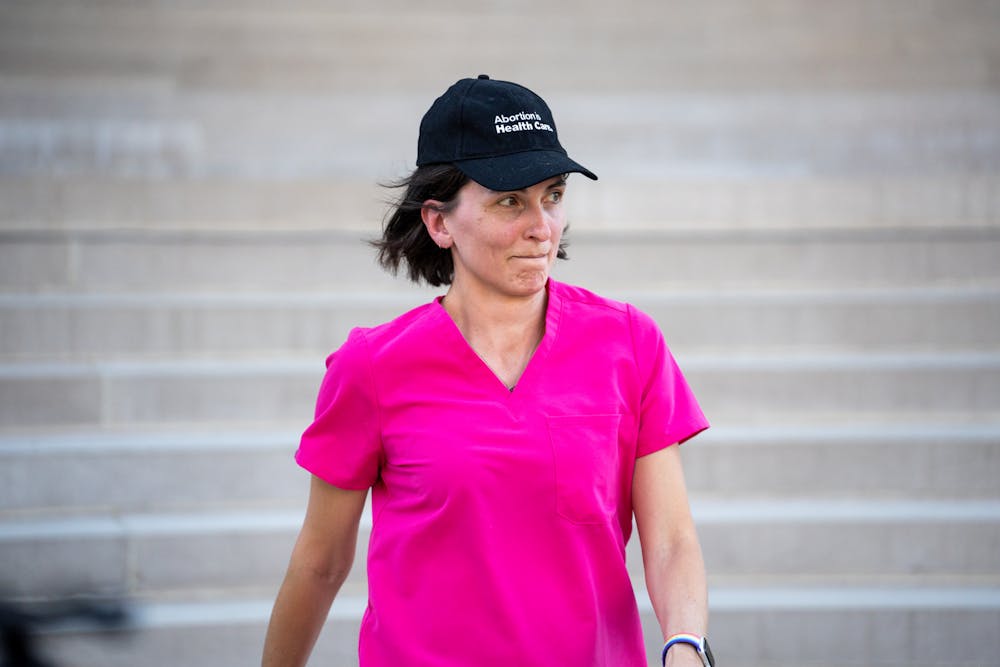For many pre-med students, the decision on where to go to medical school boils down to two factors: where they can get in and where they can afford to go.
However, it's possible that following the overturning of Roe v. Wade, a third factor will come into effect: where abortion is legal.
A recent survey from Kaplan, a company that specializes in offering test-prep services, found that 26 percent of pre-med students said the overturning of Roe v. Wade probably will impact where they apply to medical school, while 21 percent said it definitely will. 27 percent say it may or may not impact their decision.
Kaplan's senior director of pre-health programs Petros Minasi said that this survey was conducted in September and October. All students who were surveyed are aspiring doctors who are enrolled in a Kaplan MCAT course.
“What the survey finds is that an important wildcard is now a part of their decision-making process, with many of these students singling that they wouldn't apply to medical schools in states that have laws contrary to their own beliefs on abortion rights,” Minasi said. “So, we think this is unprecedented on such a large scale.”
Minasi said they thought the issue of abortion would resonate with pre-med students because it's a unique area where science, law, education and people's personal beliefs intersect.
“There's been an increased interest in activism among future doctors and making their opinions heard on a variety of topics that impact them, firstly, and the profession and society as a whole,” Minasi said. “In the past, this was much more something that was a pre-law phenomenon, but not anymore.”
Over the next few years, Minasi said Kaplan is going to continue to monitor how abortion access will be a part of the decision-making process.
“Right now, opinions are very, very strong on the issue, emotions are very raw,” Minasi said. “(This) could have significant impacts on states that are already suffering from a doctor shortage. Often medical students choose to stay in practice where they grew up, or where they went to school. So, this is going to potentially be a shift in things.”
Human biology sophomore Anthony Mulhem said that he wants to stay in Michigan for medical school due to the lower in-state tuition. He said this decision was further solidified with the passing of proposal three, which codifies abortion rights in Michigan’s state constitution.
“The idea (of) the person who's having the baby not having control over whether she wants it or not, really, really played with my sense of morals and ethics,” Mulhem said. “I felt the person who will be affected the most should have control over it rather than the state or the government.”
Human biology junior Becca Bienstock said that aside from the possible restrictions placed on doctors, she simply would not want to study in a state where she does not have all the rights that she feels she should have.
“As a pre-med student, I'd feel much more comfortable being in a state where practicing all types of medicine is legal,” Bienstock said. “If I were to be on an OBGYN type of rotation, I wouldn't have to worry that something I'm going to do that day could potentially be illegal and I'm not able to get my medical license or something, or the doctors that I'm shadowing aren't able to treat their patients in the ways that they need to be treated.”
Bienstock said that she has noticed a heightened sense of activism within her classmates. While factors such as cost and probability of acceptance will still play a large part in where they apply for medical school, these are not the only reasons.
“We want to be not only a part of a generation that helps protects rights for all people, but a part of a generation that's able to treat all people equally and be able to not have our implicit biases affect us when we're treating people of different genders and races,” Bienstock said.
Support student media!
Please consider donating to The State News and help fund the future of journalism.
Discussion
Share and discuss “Where abortion is legal may have an impact on students' med school choices” on social media.







